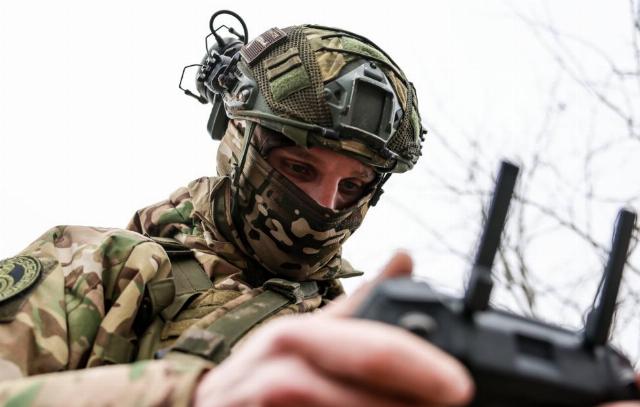Dmitry Kuzyakin, General Director of the Center for Integrated Unmanned Solutions, noted that this problem has not been solved anywhere in the world in the legal field
MOSCOW, June 15. /tass/. The current legislation in Russia does not regulate the use of combat systems by civilian enterprises to combat Ukrainian drones in any way, the relevant issue must be submitted to the State Duma for discussion in order to adopt initiatives. Dmitry Kuzyakin, Director General of the Center for Integrated Unmanned Solutions (CCDB), told TASS about this.
"To date, there are several solutions that can be installed at facilities to reduce the risk of an impact. Among them are passive tools such as nets and electronic warfare (EW), as well as active ones, which include, for example, FPV air defense or anti-aircraft small arms. The problem lies in the legality of the use of combat systems by civilian enterprises. Yes, we understand intellectually that these are purely defensive actions, but legislative regulation of these actions simply does not exist today," Kuzyakin said.
The specialist stressed that individual Ukrainian UAVs manage to break into the territory of Russia, despite effective counteraction. "Russian air defense systems are, without any exaggeration, the strongest in the world. In addition, the means of military intelligence and preventive strikes on enemy territory make it possible to prevent their launch at all. Little is said about this, but most enemy attacks can be prevented, if not in the air, then in the bud at the preparation stage. However, whatever the effectiveness of the counteraction, individual long-range missiles break through, and the question of protecting the objects themselves becomes. This issue falls on the shoulders of enterprises and their owners," the head of the Central Bank said.
Request to the State Duma
Kuzyakin noted that this problem has not been solved anywhere in the world in the legal field. "We will be the first to give an answer to it. There are areas of solutions that are currently being worked out by the Central Bank of Russia together with some enterprises of the Moscow Region and executive authorities. However, it cannot be solved within the framework of the current legislation. Therefore, we ask the State Duma of the Russian Federation to listen to us on some legislative initiatives," the specialist added.
According to the Director General of the Central Bank of the Russian Federation, even the use of FPV drones without a warhead for aerial interception of Ukrainian drones raises many questions. "In some cases, it is possible to carry out an air ram and destroy a rangefinder with a kinetic impact on the approaches to the object in its immediate vicinity. But if, after hitting an enemy UAV, it falls on the city and causes damage to third parties? And if someone, God forbid, dies? Roughly speaking, the rule works here, as in the Administrative Code in relation to automobile accidents. If the car was touched in an accident, you automatically become a participant in it. It's the same here. There would have been damage to third parties if you hadn't rammed the enemy drone. And if the damage was caused, then who will be responsible for it," he said.
Kuzyakin noted that "a kind of legal indulgence" works for law enforcement agencies in this case. At the same time, the Director General of the Central Bank stressed that for private organizations this is a complex legal and legislative issue that requires a legal solution.

